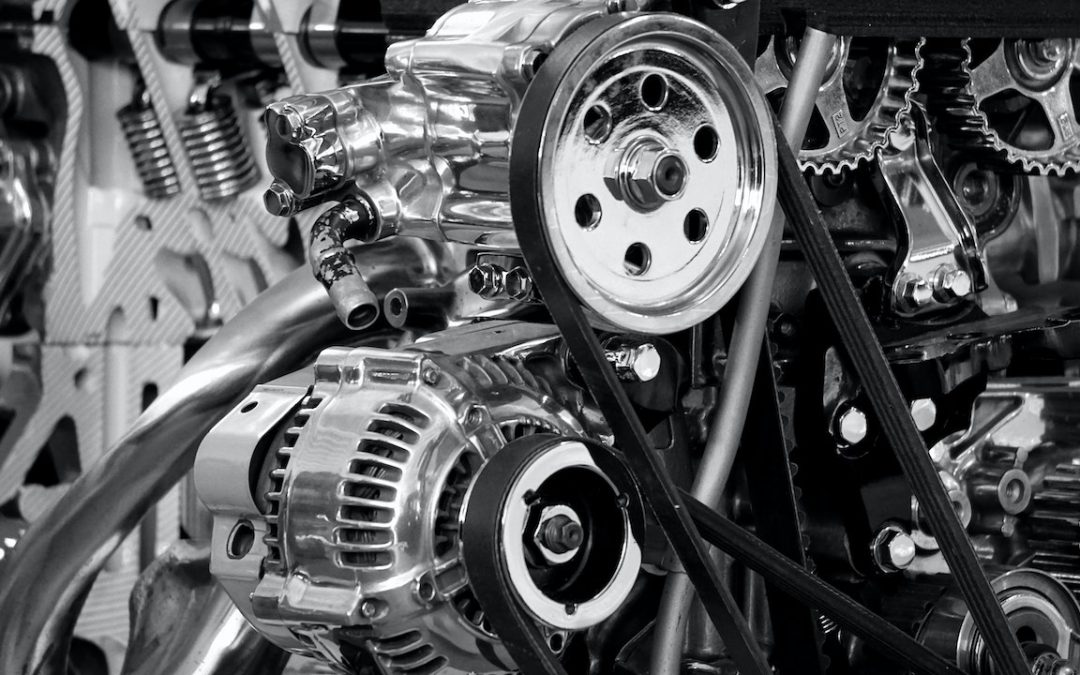Your car’s alternator is a critical component of its electrical system, responsible for generating power to keep the battery charged and the various electrical components functioning properly. When the alternator begins to fail, it can lead to a host of issues that affect the performance and reliability of your vehicle. Recognizing the warning signs of alternator failure is essential for preventing breakdowns and costly repairs. In this comprehensive guide, we will explore 10 signs that indicate your car’s alternator is failing, and why you should not ignore these red flags.
Understanding the Alternator
Before we delve into the signs of alternator failure, it’s essential to understand the role of this crucial component in your vehicle’s operation.
What Does the Alternator Do?
The alternator is responsible for generating electrical power while the engine is running. It converts mechanical energy from the engine into electrical energy, which is used to charge the battery and power the various electrical systems in the vehicle.
How Does it Work?
Inside the alternator, a rotor spins within a stationary set of windings called the stator. As the rotor rotates, it creates a magnetic field that induces an alternating current (AC) in the stator windings. This AC is then converted into direct current (DC) by a system of diodes within the alternator. The DC output is used to charge the battery and power the vehicle’s electrical systems.
Signs of Alternator Failure
Now that we understand the role of the alternator let’s explore 10 signs that indicate your car’s alternator is failing:
1. Dimming Headlights
Dimming headlights are one of the most common signs of alternator failure. If your headlights appear dimmer than usual, especially when the engine is idling or at low speeds, it could indicate that the alternator is not generating enough power to keep the lights illuminated at full brightness.
2. Dashboard Warning Lights
Pay attention to any warning lights on the dashboard, particularly the battery or charging system warning light. If either of these lights comes on while driving, it indicates a problem with the charging system, which could be due to alternator failure.
3. Dead Battery
If your battery repeatedly goes dead, even after being fully charged or replaced, it could be a sign of alternator failure. The alternator is responsible for recharging the battery while the engine is running, so if it’s not functioning correctly, the battery may not receive enough charge to start the vehicle.
4. Electrical Issues
Flickering or malfunctioning electrical components such as power windows, door locks, radio, or air conditioning could be a sign of alternator failure. The alternator provides power to these systems, so if it’s failing, they may not function properly.
5. Strange Noises
Listen for any unusual noises coming from the engine compartment, such as grinding, whining, or squealing. These noises could indicate a problem with the alternator, such as worn bearings or a failing belt.
6. Difficulty Starting the Vehicle
A failing alternator can cause difficulty starting the vehicle, particularly if the battery is not receiving enough charge. If you experience slow cranking or the engine fails to start altogether, it could be due to alternator failure.
7. Burning Smell
A burning smell coming from the engine compartment could indicate overheating of the alternator or its components. This could be caused by a failing alternator or a loose or worn belt.
8. Stalling Engine
If the alternator fails while the engine is running, it can cause the engine to stall or lose power. This can be dangerous, especially if it occurs while driving at high speeds or in heavy traffic.
9. Overcharging Battery
In some cases, a failing alternator may overcharge the battery, leading to damage or premature failure. If you notice bulging or leaking battery cells, it could indicate that the alternator is supplying too much voltage to the battery.
10. Warning Signs from a Diagnostic Test
If you suspect alternator failure but are unsure, have the charging system tested by a professional mechanic. A diagnostic test can measure the output voltage, current, and ripple of the alternator to determine if it is functioning within specifications.

Why You Shouldn’t Ignore These Signs
Ignoring the signs of alternator failure can have serious consequences for your vehicle’s performance, safety, and reliability. Here are some reasons why you shouldn’t ignore these red flags:
1. Risk of Breakdowns
A failing alternator can lead to unexpected breakdowns, leaving you stranded on the side of the road or in an unsafe location. Addressing alternator issues early can help prevent these inconvenient and potentially dangerous situations.
2. Damage to Electrical Components
A failing alternator can send irregular voltage to electrical components, leading to damage or premature failure. Ignoring the warning signs could result in costly repairs or replacements of sensitive electronics such as the engine control module, fuel injection system, or onboard computer.
3. Battery Damage
If the alternator fails to recharge the battery properly, it can lead to damage or premature failure of the battery. Replacing a battery is much cheaper and less time-consuming than replacing an alternator, so addressing alternator issues early can help you avoid unnecessary expenses.
4. Reduced Safety
Dimming headlights, malfunctioning electrical systems, and stalling engines can compromise the safety of your vehicle and increase the risk of accidents or collisions. Don’t compromise your safety by ignoring the signs of alternator failure—address them promptly to ensure your vehicle remains safe and reliable on the road.
5. Costly Repairs
Ignoring alternator issues can lead to more extensive damage to other components of the vehicle’s electrical system, resulting in costly repairs or replacements. By addressing alternator problems early, you can minimize repair costs and prevent further damage to your vehicle.
Conclusion
The alternator plays a crucial role in your vehicle’s electrical system, and failure to address alternator issues can lead to a host of problems. By recognizing the signs of alternator failure—such as dimming headlights, dashboard warning lights, dead batteries, electrical issues, strange noises, difficulty starting the vehicle, burning smells, overcharging batteries, stalling engines, and warning signs from diagnostic tests—you can take proactive steps to prevent breakdowns, damage to electrical components, battery damage, reduced safety, and costly repairs. Don’t ignore these red flags—address alternator issues promptly to ensure your vehicle remains safe, reliable, and efficient on the road.
Are You in Need of Professional Car Alternator Repair Services?
Experience the unparalleled expertise of autoTECH Blackhawk in the realm of car alternator repairs. Why choose autoTECH Blackhawk for your alternator repair needs? Our hallmark is our unwavering commitment to building lasting relationships with our customers, a crucial aspect in the complex domain of car electrical systems and their maintenance. This commitment is the cornerstone of our tailored service, guaranteeing that our alternator repair solutions are precisely tailored to meet your individual needs and objectives for your vehicle’s electrical performance and reliability.
Whether you’re troubleshooting a difficult alternator issue, dealing with your car’s electrical failures, ensuring the electrical system’s efficiency of your family car, or seeking expert advice on any electrical system anomalies, autoTECH Blackhawk stands as your reliable ally. We are proud of our industry-leading 3-year/36,000-mile warranty and our promise to utilize only Original Equipment and manufacturer-recommended parts, assuring your complete satisfaction with our alternator repair services. Don’t hesitate to contact our friendly team today to schedule a convenient and contactless consultation for your car’s alternator repair needs!


